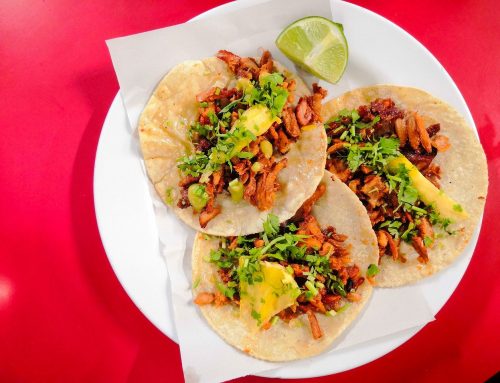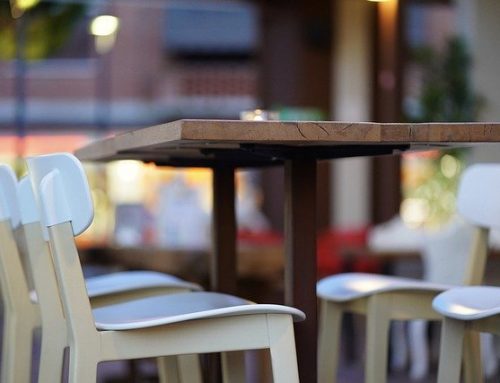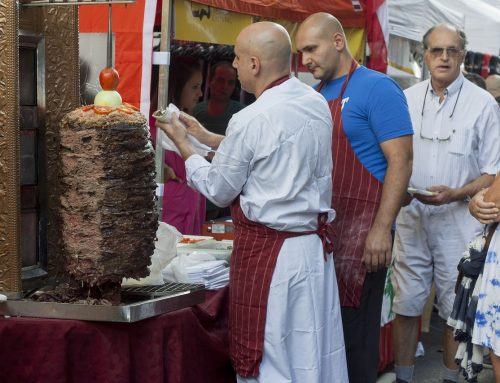This year, I made the transition from a small seasonal food truck in coastal Maine to a full-blown brick and mortar takeout restaurant. If you’re interested in learning my restaurant buildout process, read my epic series of post on the topic.
While the change has been almost overwhelmingly positive, there are a few things that keep me up at night; unwelcome, intrusive thoughts that circle round and round in my brain, that I would imagine are common to most business owners.
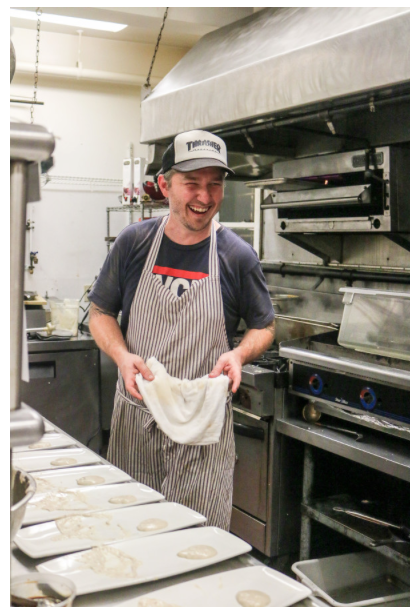
Let’s take a look at a few of these brain-goblins, and a few ways to try and deal with the stress and anxiety that seems to go hand-in-hand with restaurant entrepreneurship.
Will I have enough money to buy the inventory next week?
My business is, at this stage in its development, almost purely a one-man operation. I don’t have a war chest of savings to pull from in case of an emergency, have no investors, and am living each week from moment-to-moment.
My ability to buy inventory for the following week depends entirely on the relative success or failure of the current week. Mostly, it works, but I’m also plagued with a recurring nightmare that at some point, I’ll get to the end of the week, failed to have ring up enough sales to buy product for the following week, and pfffffft: Just like that, my business is over.

Solution: Chipping away at an emergency fund. In the last couple of months, I’ve been trying a novel approach to my bookkeeping: I don’t spend every dollar I bring in.
Sure, there’s always something to spend money on, in this business. The entryway could use a new rug. My coffee machine is a pain to use. We could really use a better set of flatware.
But instead of running my bank account to zero in an ordering frenzy at the end of each week, I’m endeavoring to save part of my daily sales in a totally separate account. Over time, this is growing into an emergency fund that I’ll be able to tap into if I have a particularly slow sales week.
For me, I was always doing these math calculations in my head. “On the 15th, I’ll get this chunk of money from X, and then I’ll move it into Y account, and then I’ll be able to pay 30% back of the Z that I borrowed from my sister, and then on the 20th, I’ll move that money from savings back into checking to cover my inventory for the week.”
It was endless and relentless, and kept my brain constantly spinning in circles. My solution has been simple. At the end of each day, I pull up my sales report. I take 25% of the day’s sales, and move them into a separate savings account.
That money is officially off the table for day-to-day expenses. This guarantees that I’ll have my 8.5% sales tax ready for the government each quarter, with the remaining amount quickly piling up into an emergency fund that I can dip into from time to time for unexpected expenses.
As that money grows each day, it frees me up from the constant mental cashflow shuffling I was doing before.
What if a vital piece of equipment explodes?
Every small business owner has a few key pieces of equipment that they depend on for the day-to-day function of their restaurant. Maybe you own a fish-and-chips shop, and can’t imagine what would happen if your deep fryer suddenly went belly-up.
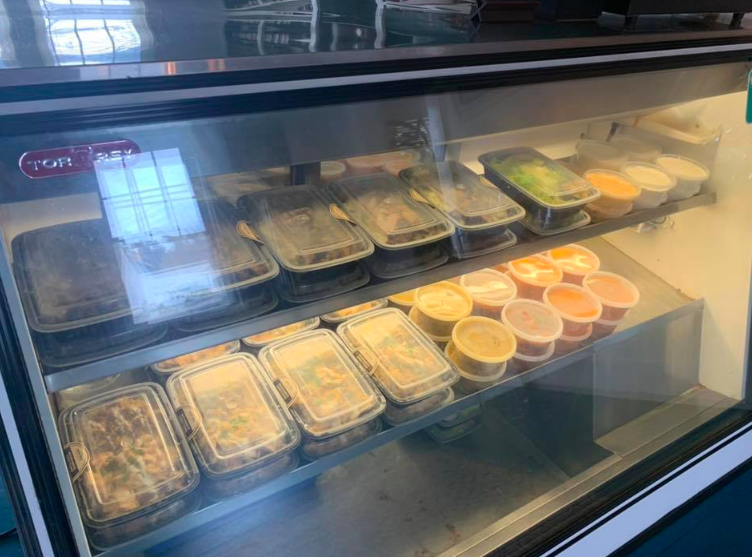
Maybe you’ve got a world-class steakhouse, that leans heavily on its thousand-degree charbroilers to give your steaks their signature salted char. In my case, a lot of my business is focused on pre-composed takeout meals, served out of a giant, malfunctioning butcher’s display cooler that’s threatening to quit on me at any moment.
And when it does, that’s a $2500 expense that I am in no way prepared for.
Solution: Figure out a game plan for when the worst happens.
All equipment fails, at some point. The only thing you can do is formulate a plan for what to do when it happens.
- Establish a relationship with your local commercial appliance and refrigeration repair person. The right one will tell you honestly if a piece of equipment is worth repairing, or if you should scrap it and start over.
- Start building another relationship with a commercial equipment firm with small purchases. Pay your bills on time, and you might find that the right dealer may be willing to offer you equipment financing terms that you can afford, in case of a total systems failure.
- Contribute regularly to your emergency fund, as outlined above.
- Figure out an alternative so that when the worst happens, you can keep going. For example, if your deep fryer dies, could you get by for a few days frying in a big pot on the stove? Could you make the parts of your menu that depend on a particular piece of equipment temporarily unavailable? Doing this kind of planning will show you that the loss of a major piece of equipment doesn’t necessarily mean that your business is crippled; you may just have to work a little harder and less efficiently until the problem is solved.
What if I don’t have enough money to pay my vendors?
Your business has been plugging alone, posting reasonable sales numbers. And then the worst happens: Your produce guy, your liquor distributor, and your equipment lease bills all come due at the same time, and what’s worse, if you don’t get them paid, your vendors will stop delivering you the fresh product you need to keep your customers happy.

Solution: Consider whether you really need to accept payment terms from your distributors.
This may seem like a painful move, and you’ll want to talk to your accountant about whether your cashflow can actually support this technique.
But what if you…paid for everything as it came in?
Now, obviously depending on the scale of your operation, this isn’t going to work for everyone. If you’re running the continental breakfast kitchen at a Hampton Inn in downtown Philadelphia, you’re probably not going to be able to pay for all of the powdered eggs and waffle batter you need for a given month, all at once.
But for smaller businesses, setting up all of your accounts as COD can take a lot of the anxiety out of getting those big bills at the end of every month. Pay for the product you need, when you need it, and you don’t run the risk of everything coming due all at once, with insufficient resources to cover it all.
Major Stress: What if nobody shows up at my restaurant?
You know who doesn’t particularly care if a new customer walks through the door? The guy who has to sit in the pit at the quick-service automotive oil change place.
But if you care about your business and the food you produce, it can be difficult to divorce yourself emotionally from the number of customers coming through the door.
For me, this tends to flare up under one of two conditions: When I’ve spent a lot of money on inventory to run a special (thereby risking losing that money), or when I’ve developed a dish that I really love, and want every single one of my customers to try.
Related Reading: Cooking is My Passion. Should I Start a Restaurant?
And inevitably, right before service begins, I am filled with panic: What if the customers simply don’t come?
Solution: Relax, and find ways to reuse elements of your dish on an unexpectedly slow night.
First of all, your regulars are probably going to show up, particularly if you’ve marketed your special well and generated a little pre-service buzz via Facebook or Instagram. But sooner or later, every restaurant has an unexpectedly slow night, when the people just…don’t come.
Instead of tearing your hair out trying to suss out all of the reasons why, on this particular night, your customers all decided to stay home, figure out how you can re-use elements of your dish in new ways.
No one came for your really cool Tandoori chicken? Shred that chicken up and make burritos the next day. Stuck with two gallons of barbecue sauce that nobody had the decency to show up and eat?
Throw it in the freezer; you’ll get your money out of it eventually. Try to look at unexpectedly slow sales periods not as a catastrophe, but instead as a minor delay in getting paid. You can re-use those ingredients and come out ahead in the long run.
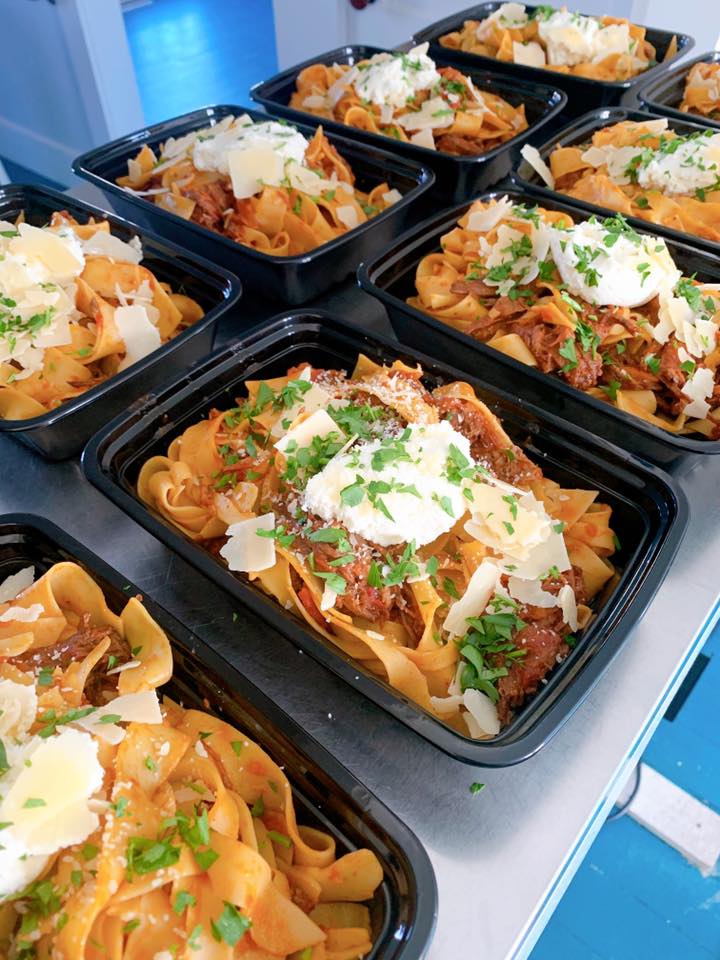
Stress: How do I deal with that negative Yelp review?
We’ve all been there. You work 100 hour weeks, leaving your heart and soul on every plate that goes out, and a trail of blood on the kitchen floor.
And then some two-bit asshat with a semester of journalism and delusions of grandeur blesses the internet with a few hundred vomited words criticizing everything from the size of your tables to the haircut of your hostess. What’s your next move?
Solution: Take a deep breath. First of all, nobody uses Yelp or TripAdvisor; the “reviewers” with hundreds of posts are talking mostly to themselves or each other.
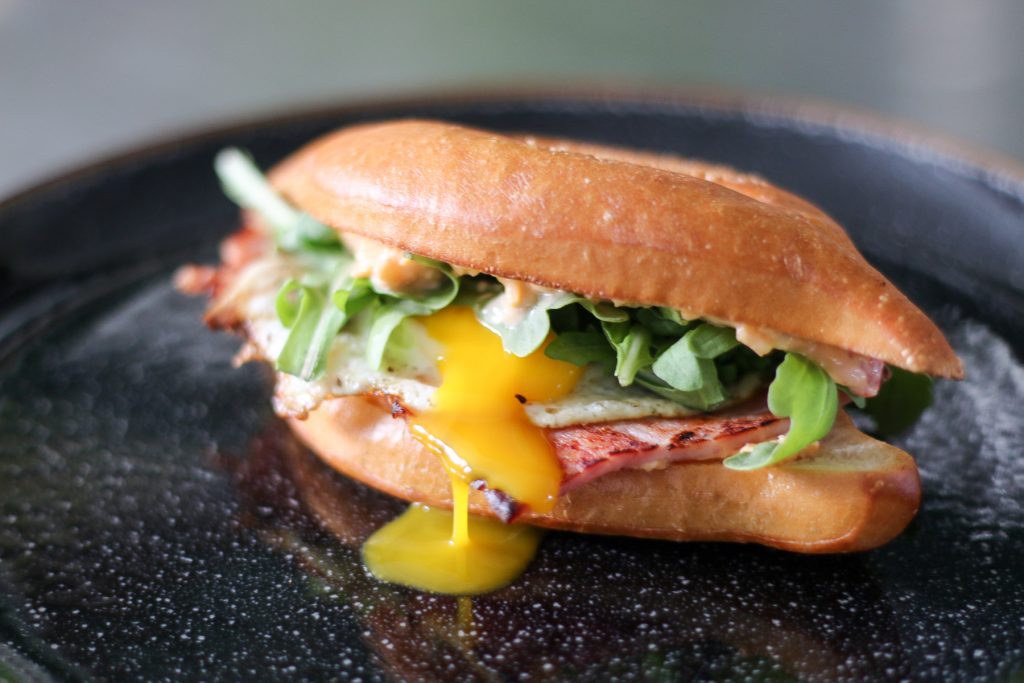
Okay, maybe that’s not exactly true; plenty of people still depend on review sites when figuring out where to drop their next dining dollar, and besides, criticism stings, no matter where it’s coming from. But instead of penning a reply to your critic with a few choice observations of your own, wait a few hours. Walk away, and then read the review again.
If you choose to respond, remember that your response is public, and is more in the service of the other users of the site, rather than the original reviewer themselves.
While it may be easy to eviscerate the reviewer or post “your side of the story,” it’s not your goal to make that single reviewer feel bad; it’s your job to make anyone else who finds the post feel good.
Own any mistakes or hiccups in service, and assure the reviewer that you’ll redouble your efforts to make his or her next experience at your restaurant a great one, regardless of who’s right and who’s wrong. When you slam your critics, it only makes you look worse.
Stress: That whole “work/life balance” thing.
See if any of these scenarios sound familiar. You see your husband, wife, or significant other for a few minutes each morning, as you rush through breakfast and run down the events of the day, only to collapse into bed long after they’ve fallen asleep, tired and broken from a particularly grueling service.
Your belly has grown so it hangs over the waistband of your pants, not because you ever get to enjoy a real, sit-down meal, but because of your habit of tasting things off of the back of a spoon all day long. Your son, who you could have sworn was eight years old just a minute ago, suddenly has a mustache.
Related Reading: How I Opened a Restaurant with Bad Credit and a 540 Credit Score
As anyone in the restaurant industry knows, it is more than a full time job (and sometimes, more than even two full time jobs), and your passion for what you do and what you want to build can sometimes swallow up everything else in your life. So how do you get to have a life, even as you devote yourself body and soul to your business?
Solution: If you can’t find the time, make the time. Consider what the long hours you are spending away from the people you love is doing to your relationships.
Even the most patient and supportive spouse in the world is still going to want to see you from time to time, and if you have kids, your time to enjoy their childhood is already remarkably fleeting.
Take the time to nurture these relationships and take care of yourself, even when it feels like self-care is a luxury or a priority that only other people get to have. This can take a few different shapes:
- Consider your schedule. When we open a new restaurant, our tendency is to run at it full-bore, to make it a success. And while a certain amount of that is necessary, ask yourself: “Do I really need to be open seven days a week?” Take a look through your sales reporting, and if you find a day where sales are weak, consider whether it’s really worth it to be open that day. Try mentally reversing the amount of money you make that day, to ask yourself: “Would I pay someone this amount of money, to get to have the day off?” If the answer is yes, it may be time to reconsider your schedule.
- Consider a mid-season hard reset. In seasonal areas like mine, it’s not unusual to see restaurants take a solid week or two off, in the dead of winter. It can be hard not to think of all of the lost revenue such a closure could mean for your business, but a solid week off, away from the restaurant, and away from the daily rigors of keeping your business going can do wonders for your mental well being. A vacation is nice, but you don’t even need to do anything extravagant; pick a slow time to spend a week sleeping late, noodling around on projects at the house, or hugging the people that you love.
- Steal some little moments for yourself. Remember to take some time to go out for a nice dinner, once in a while, and let someone else do the cooking for once (without mentally picking apart the entire experience). Leave time for taking a walk now and then, or going to see a movie by yourself. Find little moments throughout the day to take for yourself, to remind you of the great big life you have outside of your kitchen. Want to know a secret? When it’s slow, I go in the back office and do push-ups. Weird, right? But taking even a few minutes to do something 100% for myself keeps me connected to the outside world, while hopefully somewhat mitigating the effects of my steady diet of heavy cream and bacon fat. These don’t have to be big gestures; just little moments that are entirely your own.
In conclusion, owning and operating a restaurant can be a punishingly stressful undertaking, regardless of its level of relative success or failure. Learning to cope with these recurring anxieties in a healthy way can be one of the most challenging aspects of the job.
But doing so is critical not just to the success of your business; you need to learn to cope with stress in order to keep yourself and the people you love safe, sane, and ready to do it all over again the next day. Now, get some sleep.
Can’t sleep? Learn the eight key ways I saved money opening the doors to my restaurant.


